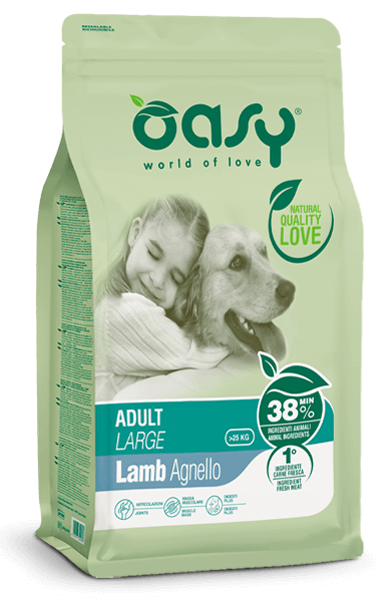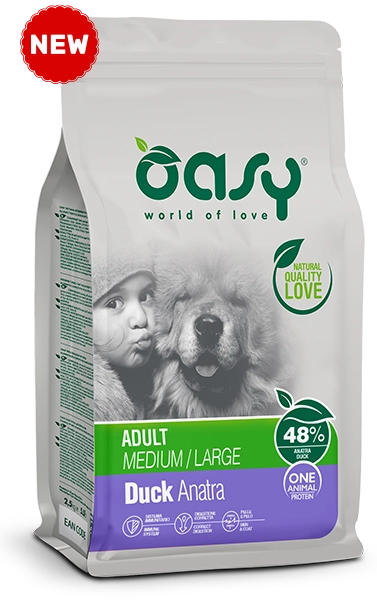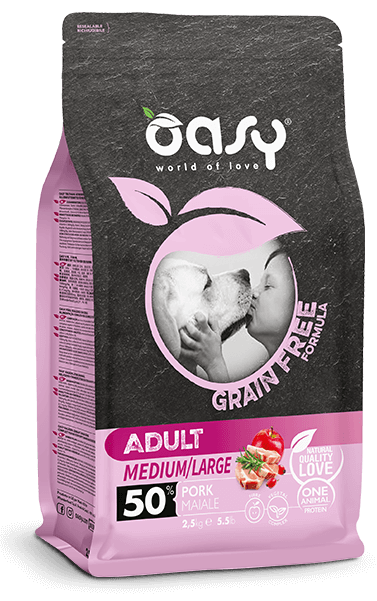Proper nutrition begins with the right choices: discover the 10 foods that are toxic to dogs and which ones are safe and healthy.
The
health of your dog starts (also) from the
food bowl. Every day,
through nutrition, we can
contribute significantly to their well-being, energy levels, and quality of life. Often, however, with the best intentions, we tend to share bites of our food with them, forgetting that
their digestive system operates differently from ours.
Certain foods that are harmless to us can be
difficult to digest, irritating, or, in some cases, even
toxic to dogs.
Learning to recognize what to avoid and what can be safely offered is the first step in building a diet suitable for their nature and real needs. In this article, we explore the list of
foods toxic to dogs and the alternatives that can promote their well-being.
10 Foods Toxic to Dogs
When it comes to
dog nutrition, it's important to know not only what to offer but also what to avoid. Some foods can be toxic, others hard to digest, and some may cause long-term issues. Here's the
list of foods toxic to dogs.
Knowing this list is crucial to protect your four-legged friend's health.
- Chocolate: Chocolate is among the most dangerous foods for dogs, often underestimated. It contains theobromine, a stimulant similar to caffeine, which a dog's metabolism cannot effectively eliminate. Accumulation can cause a range of symptoms, from vomiting and restlessness to muscle tremors, tachycardia, and seizures. The darker the chocolate, the higher the theobromine concentration, and thus the risk. Even small amounts, especially in small dogs, can be toxic.
- Onions and Garlic: Onions and garlic, in all their forms—raw, cooked, dried, or powdered—are toxic to dogs. They contain substances that can damage red blood cells, impairing the blood's ability to transport oxygen. The most common risk is hemolytic anemia, which can manifest with symptoms like weakness, lethargy, pale gums, and, in severe cases, breathing difficulties. The toxic effect is cumulative, meaning it adds up over time even with small amounts consumed repeatedly.
- Grapes, Raisins, and Macadamia Nuts: As with our feline friends, grapes and raisins can affect a dog's well-being, potentially leading to kidney failure. Macadamia nuts, on the other hand, are toxic to dogs even in small quantities. Symptoms can appear within hours of ingestion and include weakness, tremors, fever, vomiting, and coordination difficulties. Therefore, it's essential to avoid leaving this type of dried fruit within the dog's reach, even when present in cookies, sweets, or snack mixes.
- Alcohol: Alcohol is toxic to dogs, even in minimal doses. Just a few drops can cause negative effects on the body: common symptoms include vomiting, disorientation, lowered body temperature, and respiratory difficulties. Alcohol can be found not only in beverages but also in fermented foods, sweets, and raw dough. A dog's curiosity and keen sense of smell may lead them to sample what we consider commonplace at home. It's crucial to prevent any exposure and contact the veterinarian at the first signs of distress.
- Cooked Bones: Even though often considered a "classic treat," cooked bones are dangerous for dogs and should be entirely avoided. During cooking, the bone loses elasticity and tends to splinter easily, creating sharp fragments that can cause choking, mouth injuries, stomach or intestinal perforations, with potentially severe consequences. This applies to both chicken bones and larger ones, like beef or lamb bones. If you want to offer the dog something to chew on, it's better to opt for safe and controlled snacks specifically formulated for their dental health and safety.
- Coffee, Tea, and Energy Drinks: Caffeine has a stimulating effect on a dog's nervous system and can cause issues like agitation, tachycardia, and other disturbances.
- Raw Leavened Dough: Raw dough containing yeast, such as bread, pizza, or pastry dough, should never be ingested by dogs. Once in the stomach, the yeast continues to ferment, producing gases that cause rapid abdominal bloating, accompanied by pain, nausea, and restlessness. Additionally, fermentation can also generate alcohol, adding another toxicity risk. To protect the dog, it's essential to prevent access to raw dough, even out of curiosity.
- Sweets, Sugars, and Xylitol: Consuming sugars not only promotes overweight and digestive disorders, but xylitol (often present in sugar-free sweets) is a substance that can be highly toxic to dogs.
- Processed Meats and High-Salt Foods: Foods rich in salt are unsuitable for dogs and should be entirely avoided. Their high sodium content can lead to dehydration, increased blood pressure, and, over time, kidney problems. Moreover, many processed meats contain excess fats, spices, preservatives, and other ingredients not suitable for a dog's digestive system. Even if it seems like an innocent occasional treat, a bite of ham or salami can be unnecessary stress for the dog's body, especially if given frequently.
- Unpasteurized Raw Eggs: Even though eggs are a food rich in proteins and beneficial nutrients, offering them raw to the dog is strongly discouraged. The main reason is the risk of contamination by salmonella, a bacterium that can cause severe gastrointestinal disturbances. Additionally, raw egg whites contain a substance called avidin, which interferes with the absorption of biotin, a B vitamin important for skin, coat, and metabolism.
What Does a Healthy Dog Diet Look Like?
A
balanced diet for your four-legged friend should be
complete, balanced, and suitable for their age, size, activity level, and health status.
Animal proteins should form the basis of the diet, accompanied by the right amount of fats, carbohydrates, vitamins, and minerals. Proper hydration is also crucial: the dog should always have access to fresh, clean water and can benefit from wet food in their daily diet.
Choosing foods formulated with care, free from unnecessary or potentially irritating ingredients, is the best way to support the dog's well-being every day.
Good nutrition isn't just feeding: it's prevention, energy, vitality. It's an act of love renewed with every meal. For this reason, to
make your dog happy at mealtime, it’s essential to rely on food lines made with carefully selected ingredients and the right nutritional balance.
Oasy’s Recommendations for a Complete and Healthy Diet
Oasy offers a
complete range of dry and wet food for dogs, developed to
support every stage of their life and
meet a wide variety of nutritional needs, with balanced, palatable recipes made with natural ingredients.
Whether it's a growing puppy, an active adult, or a senior dog needing targeted support, Oasy provides tailored solutions for every life stage. The products
come in different formats and formulations designed for small or large breed dogs, ensuring the right energy intake and maximum digestibility.
Choosing Oasy means taking care of your dog every day—with love, attention, and the confidence of offering them a diet designed to support true, lasting well-being.


